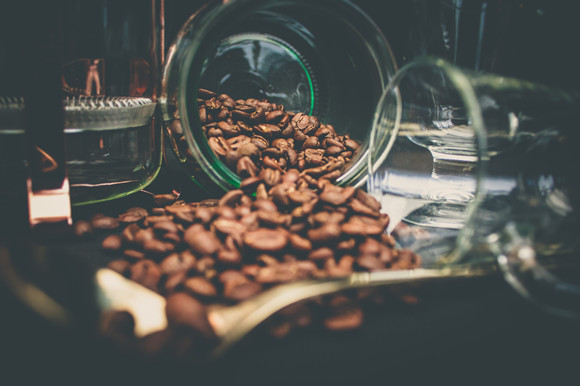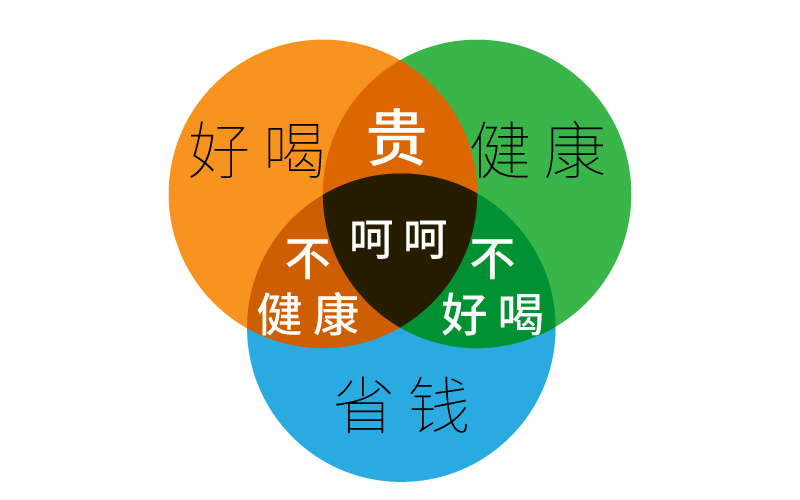How is the coffee market in China? That's what the foreign media said.
For professional baristas, please follow the coffee workshop (Wechat official account cafe_style)
Coffee started relatively late in China, in the early days, only high consumers or returnees were interested in going to the cafe for a drink, and with the passage of time, the domestic coffee market has undergone earth-shaking changes. As an important part of the world coffee market, China has attracted the attention of foreign media. Let's take a look at the coffee market in the eyes of foreign media.
Recently, foreign media said that coffee is squeezing into the Chinese market, which is dominated by tea culture, and the consumption of coffee here is likely to change from being the lowest in the world to leading in the world. China accounts for less than 2% of the world's coffee consumption, but the industry has begun to change.
According to the BBC website on July 14, 2005, Richard Chien opened a coffee shop in northeast China. At that time, a group of newly apprentice baristas could make about 900 cups of coffee a day, each costing 6 yuan-less than $1. Ten years later, he ran an advanced coffee school in Beijing. There, trainees spend hours learning about the aroma and tasting skills of coffee beans, and the coffee used during the training costs $6 per cup.
China's "economy has changed, and people increasingly understand different lifestyles." Richard Qian said, "they no longer see only tea."
Coffee consumption in China has nearly tripled in the past four years, ranking first of all the large markets it tracks, according to the USDA. The potential of the Chinese market is also huge: the country has a total population of 1.4 billion.
Starbucks is full of confidence in the Chinese market, so it plans to open its first international baking and experience center in Shanghai next year. The company believes that China will become its biggest market. The Seattle-based coffee chain already has more than 2000 stores in China and plans to add more in each of the next five years. Donndole, another US coffee chain, announced last year that it would add more than 1400 stores over the next 20 years, an increase of nearly a hundredfold.

The increase in coffee sales is a testament to China's transition to a consumption-driven economy, mainly due to changes in the willingness of the expanding middle class to spend, the report said. More and more Chinese are traveling abroad, some tasting espresso in Japan, and some finishing term papers in coffee shops in the United States. Unlike their parents, many of China's younger generation grew up surrounded by coffee shops.
"it happens to be at the sweet spot of casual household spending." Gao Zicheng, an investment professor at Peking University, said he was the co-author of "understanding Chinese consumers in an hour: five short stories to understand the brutal struggle of 1 billion consumers." To many Chinese, drinking coffee still seems like a hobby, but it is a luxurious way of life not far away.
In China's slowing economy, demand for other commodities is falling, but coffee seems to be an anomaly. The country's huge population base and almost untapped market offer unprecedented opportunities.
Chinese people drink an average of three cups of coffee per person per year, almost the lowest in the world, just above countries such as Sudan and North Korea, according to data provided by Ore International, a market research firm. By comparison, Americans drink an average of 363 cups of coffee a year, while Britons drink 250 cups of coffee.
Lei Xiaoshan, managing director of the China Market Research Group, said the Chinese craving for coffee has "completely changed the global supply chain." Coffee growers need to decide how to produce more beans for them in order to cater to Chinese tastes. "this has happened before, when the price of coffee beans soared as demand exceeded supply, and the situation was not alleviated until growers increased production."
The company estimates that coffee consumption in China will maintain a growth rate of about 20 per cent a year, a change that Mr Rein believes is largely due to women under the age of 30. "instead of buying Louis Vuitton bags, they turned their attention to experiential consumption." "Coffee culture is part of it," he said. "

Taste and cost pose a threat to China's burgeoning coffee market, especially outside urban areas with higher living standards, the report said.
"if you compare a coffee shop in China, especially a high-end coffee shop, with coffee shops in California and Boston, you will find that they sell less coffee every day." "it's not growing rapidly," said Peter Redosevic, a trader at Royal Coffee, a California coffee exporter.
For coffee to be truly successful in China, areas with fewer tourists must be convinced that coffee can supplement or even replace tea-especially for some unique coffee varieties, the report said.
The Wall Street Journal website has reported that demand for goods in China may be slowing as the economy slows, but coffee-even if expensive-is a rare bright spot in a country with a tradition of drinking tea. Analysts say demand for other luxury goods, including imported fresh fruit, is also growing rapidly, driven by changing tastes and a rapidly growing middle class.
Coffee represents "a Western way of life that is attractive to the upper class and middle class in cities" compared to tea, which is seen as a more traditional drink, according to Lafayette, a food and beverage analyst at BMI Research.
Taiwan's Zhongshi Electronic News once reported that some coffee experts said that if the mainland drank 20 cups per person per year, the world coffee price would rise threefold, which shows the great influence of the mainland on global coffee.
Generally speaking, in the eyes of foreign media, although the amount of coffee per capita in China is still small, the Chinese coffee market still has great potential.
Important Notice :
前街咖啡 FrontStreet Coffee has moved to new addredd:
FrontStreet Coffee Address: 315,Donghua East Road,GuangZhou
Tel:020 38364473
- Prev

Coffee: When will our customer base surge?
Professional barista communication, please pay attention to coffee workshop (Weixin Official Accounts cafe_style ) The following is my summary guess. And I think it's not just coffee. In 2000, the number of college entrance examinations was 3.75 million, and since then the number has increased by 500,000 or 600,000 every year. In 2008, the year of my college entrance examination, the number of people taking the national college entrance examination was the highest ever, reaching 1050.
- Next

Is instant coffee really that bad? Why do people fight for instant coffee?
For the exchange of professional baristas, please pay attention to the instant coffee in the coffee workshop (Wechat official account cafe_style), which is indispensable to many office workers and students. Easy to brew, good taste, easy to carry. But I think you have more or less heard a lot of rumors, such as instant coffee is a health killer, instant coffee plant fat powder makes people drink to death and other creepy claims that instant coffee
Related
- What brand of black coffee is the most authentic and delicious? what are the characteristics of the flavor of the authentic Rose Summer Black Coffee?
- Introduction to the principle and characteristics of the correct use of mocha pot A detailed course of mocha pot brewing coffee is described in five steps.
- Which is better, decaf or regular coffee? how is decaf made?
- How much is a bag of four cat coffee?
- How about four Cat Coffee or Nestle Coffee? why is it a cheap scam?
- Which is better, Yunnan four Cats Coffee or Nestle Coffee? How about cat coffee? is it a fake scam? why is it so cheap?
- How about Cat Coffee? what grade is a hoax? which instant coffee tastes better, four Cat Coffee, Nestle Coffee or G7 coffee?
- Process flow chart of coffee making-Starbucks coffee making process what coffee tastes good at Starbucks
- The top ten best coffee beans in the world Rose summer coffee or Tanzanian coffee tastes good
- Yunnan four cat coffee is good to drink?_four cat coffee is a big brand? four cat blue mountain coffee is fake?

